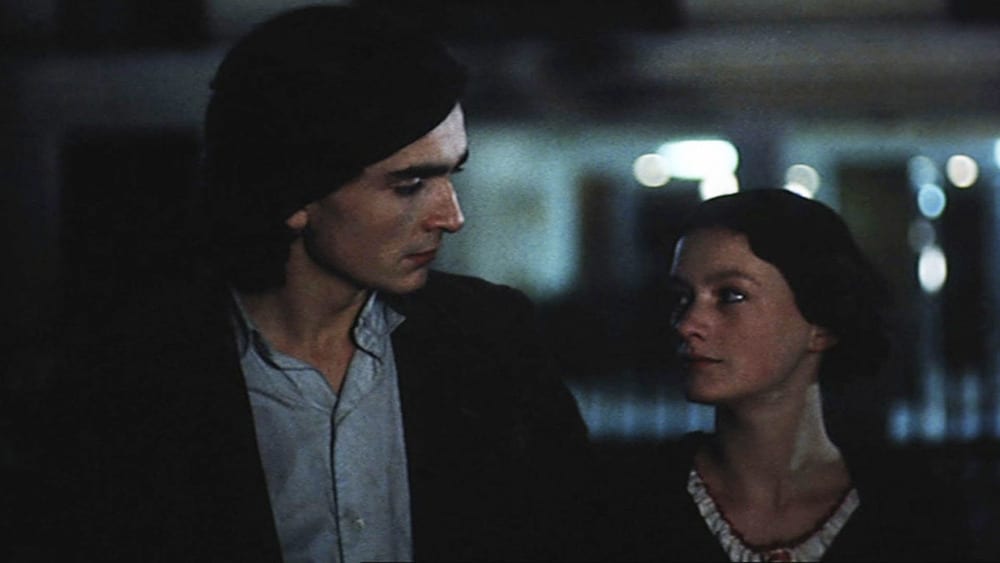Cannes 77 – Quattro notti di un sognatore: Bresson secondo Schrader, Jia, Wenders, Loznitsa
Il primo film a colori di Robert Bresson è stato restaurato in 4K. Le parole di Paul Schrader, Jia Zhang-ke, Wim Wenders e Sergei Loznitsa a presentazione del film

A Cannes nella sezione Classics è stato presentato il restauro, curato da mk2 films, in 4K di Quattro notti di un sognatore di Robert Bresson. Il film del 1971 è un adattamento di Notti bianche di Fëdor Dostoevskij, con Bresson che, come scrive Fabio Fulfaro, modella il romanzo “secondo l’umanesimo pasoliniano“, distanziandosi dalla trasposizione di Luchino Visconti. Per presentare il film lasciamo la parola alla traduzione dell’introduzione al film tenuta da Paul Schrader in occasione del passaggio cannense, e al testo di Jia Zhang-ke dal presskit di Cannes Classics, da cui provengono anche i componimenti poetici (tradotti in inglese) di Wim Wenders e Sergei Loznitsa.
Paul Schrader
Ho visto Quattro notti di un sognatore quando è uscito.
Bresson per me era una stella polare. Non ho visto film nella mia giovinezza, inizialmente in college quando ho cominciato con film come Il diario di un curato di campagna, Il posto delle fragole, Ordet, Viridiana di – e presto ho capito che i film potevano operare a un livello più profondo e sono diventato pazzo per i film, un cinema-filo.
Ma Bresson è stato sempre una sorta di motivo, e l’ho copiato in varie forme negli anni, a partire da American Gigolo, e ci ho piazzato il finale da Pickpocket, e ho realizzato che non era giusto lì. Quindi l’ho messo alla fine di Lo Spacciatore.
Ma questo Quattro notti di un sognatore ha introdotto il cambiamento nell’opera di Bresson, visto che aveva lavorato fino a quel momento col bianco e nero e principalmente in culture maschili. Da questo film comincia a lavorare con importanti personaggi femminili. Nel film, abbiamo un paio di tagli interni all’appartamento di Jacques. Non mi lasciarono a mio agio appena li ho visti, perché non ero a mio agio col fatto che Bresson aveva a che fare con delle donne, ero così abituato a vederlo come un regista di uomini solitari.
I colori mi hanno lasciato un po’ perplesso, perché Antonioni era passato al colore e Bertolucci e Godard avevano affrontato il colore. Bresson non credo abbia mai capito pienamente il colore. Semplicemente non ci si era mai sentito a suo agio. Ma questa era la mia opinione quando al tempo ho visto il film. Poi, certamente, ho realizzato che mi portavo dietro questi pregiudizi dalle prime visioni, non l’ho più visto, non ne ho più scritto – non era disponibile -, e sono rimasto scioccato dal fatto che fossi talmente prevenuto per il fatto che fosse a colori e riguardasse una donna che non mi sono accorto di quanto Quattro notti di un sognatore fosse un gran film. Quindi, eccolo qui. E beati voi.
Jia Zhang-ke
L’11 Novembre 1971, in un’intervista prima della presentazione di Quattro notti di un sognatore, il regista Robert Bresson ha detto in un’intervista a Le Monde: “Per quanto possa essere triste il declino dei film, realizziamo che il cinema continua a gettare luce e che attraverso di essa – abbastanza paradossalmente e non so come – le arti in qualche modo stanche possono raggiungere nuovi obiettivi”. Nel 2024, Quattro notti di un sognatore è nuovamente nei cinema con una nuova versione restaurata. Dopo tre anni di pandemia, questo mondo stanco saluta il film a Cannes. È passato mezzo secolo e questo film continua a gettare nuova luce.
Sergei Loznitsa
“Who am I? What am I? Nothing but a dreamer,
Having lost the blue of my eyes in the fog,
And I loved you, to be honest,
Only as I did everyone on earth.“
Sergei Yesenin
Quando bisogna parlare dei film di Robert Bresson, bisogna ricorrere alla poesia, visto che i suoi film erano essenzialmente componimenti poetici.
“Four nights of a dreamer”
It’s a film about the mystery of love,
How accidental an object of desire is,
How time aggravates the pain of longing,
How overwhelming the appeal of one’s dream is,
How to see is to be blind; and how to be blind is to see.
It’s about red, white and black.
It’s about moments
Disappearing in the abyss of eternity.
Metaphysics of love.
Wim Wenders
Four nights of a dreamer,
but who’s dreaming here?
No credits whatsoever,
the film starts right away.
By the side of a freeway entrance:
A young man hitchhiking, trying to leave the city.
Finally a car stops.
“Where are you going?”
The young man, instead of an answer,
just raises his arms, then shrugs his shoulders.
“Just anywhere”, he seems to want to say.
“Get in,” the driver says.
And off he goes…
We see nothing of the drive.
Instead, we see thy young man enter the frame again.
He’s in nature, nothing but fields and green.
He makes a summersault in a field of flowers.
He walks, singing to himself, oblivious to the world.
Night. Back in the city.
The young man gets out of another car, says “Thanks a lot.”
He’s back in Paris.
We recognize the long gone Publicis “Drugstore” in St. Germain.
Our young man walks into the night.
The image gets blurry and out of focus.
A guitar starts strumming, like the beginning of a song.
It could be Michel Polnareff, French singer of the Seventies.
But no, no song, the music fades out quickly after a few beats,
and instead we now see the credits.
A film by Robert Bresson
based on a short novel by Dostojewski.
FOUR NIGHTS OF A DREAMER.
After the credits:
A street sign: PONT NEUF.
And a title: FIRST NIGHT
Our young man comes around the corner.
The story begins.
It would be spoiling the film by saying more.
You’ll see our young man, Jacques, (Guillaume des Forêts)
encounter a young woman on the bridge, Marthe,
(a very young Isabelle Weingarten, appearing for the first time on screen)
We follow an amazing story.
Yes, from the “boy meets girl” category, you could say,
but it is so much more,
transcends that genre and leaves it forever behind.
This is a film like no other.
It redefines the territory,
even dissects how “music” and “story” belong together,
only to put both into a very satisfying new relation again.
What does it mean to share your story with someone?
What part of stories is real, what is invented?
And are there any “true stories”?
What responsibility you accept by listening to the stories of others?
Can you ever enter somebody else’s universe,
somebody else’s hopes, love, despair?
After four nights on the Pont Neuf,
the film ends in front of the Drugstore again.
Was it all a dream?
Anyway, Jacques goes back to his painter’s studio.
The story, invented or not, has filled him with new energy.
Stories do that.
We live on stories.
We thrive on them.
They keep us going.
And some stick with us,
because they show us everything from scratch.
Like this one, suggested by Robert Bresson in 1970
but totally timeless,
beautifully shot by Pierre Lhomme,
and impeccably restored in 4K.























